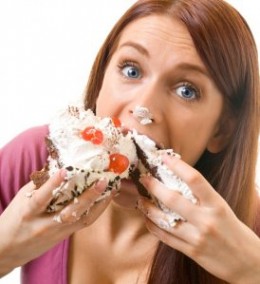Q & A – WEIGHT MANAGEMENT & EMOTIONAL EATING

Answers by: Dr. Fine
Question:
Dr. Fine, I always seem to loose weight when I diet, however I also always gain the weight back within the next few months. Why is that and what can I do to prevent regaining the weight I worked so hard to lose?
Answer:
Weight loss is an internal process. Diets are inherently temporary and attempt to change what you eat and how you exercise over short periods of time. We assign ourselves an arbitrary number and once we reach it, we purge ourselves of the healthy habits our diet forced us to acquire. Unhealthy eating and failure to exercise properly are byproducts of poor choices, therefore, it is necessary to change our thoughts and learn to restructure our thinking.
Everyone is different; your best chances for success is to sit down with a specialist in Weight Maintenance who can individualize specific strategies. Success requires the right attitude in addition to the proper program.
Question:
Dr. Fine do you recommend keeping a weight loss journal and why?
Answer:
Absolutely. If you are serious about making a lifestyle change a personal journal should be kept not only to identify what your eating, but to identify how much your exercising and the motivating forces that influence your eating.
Question:
Answer:
Very normal, and here’s why: Fluctuating hormones have a strong affect on your brain’s chemistry, which, in turn, has a strong connection to food. This is what is causing your intense cravings. Research indicates that a combination of fat a
nd sugar enhances the production of endorphins and serotonin. This can lead to feelings of joy, calm and satisfaction.
Question:
Dr. Fine, I need to lose 30 pounds so I am in the process of reading a variety of diet books to see which one I like the best. In every book they tell you to find out if you’re an emotional eater. What does this mean and how do I find out if I am an emotional eater?
Answer:
Eating is strongly connected to feelings including happiness, sadness, loneliness, boredom, anger, and restlessness. In addition, overeating can be directly related to stress, anxiety and depressed moods. Health professionals and experts are beginning to realize that the large majority of overeating stems from our emotions. Being able to predict what we eat, why we eat it and what effect it has on our feelings gives us the ability to identify our needs as well as understand our feelings and cravings. The reason the subject comes up in every diet book is because our ability to learn how to address emotions and stress, without reaching for food, is key to weight loss and a successful weight management program.